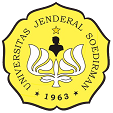Molecularly Imprinted Polymer Solid-Phase Extraction (MISPE) for the Determination of Dinitro-ortho-cresol (DNOC) and Its Risk Assessment in Tomatoes
-
Abstract
In this study, the molecularly imprinted polymer solid-phase extraction (MISPE) method for the determination of dinitro-ortho-cresol (DNOC) before HPLC (High-performance liquid chromatography) analysis was conducted. This study aims to analyze the sorption behavior and the potential use of molecularly imprinted polymers (MIP) for DNOC extraction. MIP was prepared using a combination of methacrylic acid as the functional monomer; ethylene glycol dimethacrylate as the crosslinker, benzoyl peroxide as the initiator, and acetonitrile as the porogen. The results showed that the optimum adsorption of the material was achieved at pH 5 for a contact time of 30 min with an adsorption capacity of 137 mg/g. The ideal eluent for desorption was a mixture of methanol and acetic acid with a ratio of 3:1. The calculations showed that the adsorption process followed the Sips adsorption isotherm model (n = 0.967), which indicated adsorption on both homogeneous and monolayer surfaces. Reusability studies that were conducted via three consecutive adsorption-desorption cycles resulted in recovery values of 109.4%, 108.8%, and 101.1%. The concentration of DNOC obtained from tomato samples was 0.65 mg/kg with a recovery rate of 87.17%; this was within the tolerable range between 80% and 110%. Based on the high recovery and low LoQ, this method can be used to quantify DNOC quickly.
Authors agree with the statements below:
- Authors automatically transfer the copyright to the MOLEKUL journal and grant the journal right of first publication with the work simultaneously licensed under a Creative Commons Attribution 4.0 International License (CC BY 4.0).
- Authors are able to enter into separate permission for the non-exclusive distribution of the journal's published version of the work (e.g., post it to an institutional repository or publish it in a book), with an acknowledgment of its initial publication in this journal.













